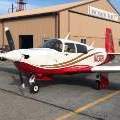How good are you?
How good are you?
54 members have voted
-
Members Online
- hammdo
- Slick Nick
- Falcon Man
- Blaze
- DonMuncy
- theoriginalturk
- Will.iam
- ohdub
- MikeOH
- 201er
- Nokomis449
- Jeff Uphoff
- McMooney
- Todd1
- GoldtoBlue
- PeteMc
- Boilermonkey
- Aleksei
- Andy95W
- PeytonM
- 1980Mooney
- Fly Boomer
- glbtrottr
- 1967 427
- GMBrown
- good2eat
- Bunti
- blaine beaven
- MattD89
- LBM
- Grahame
- INA201
- Jim F
- 47U
- alextstone
- gevertex
- Schllc


Recommended Posts
Join the conversation
You can post now and register later. If you have an account, sign in now to post with your account.